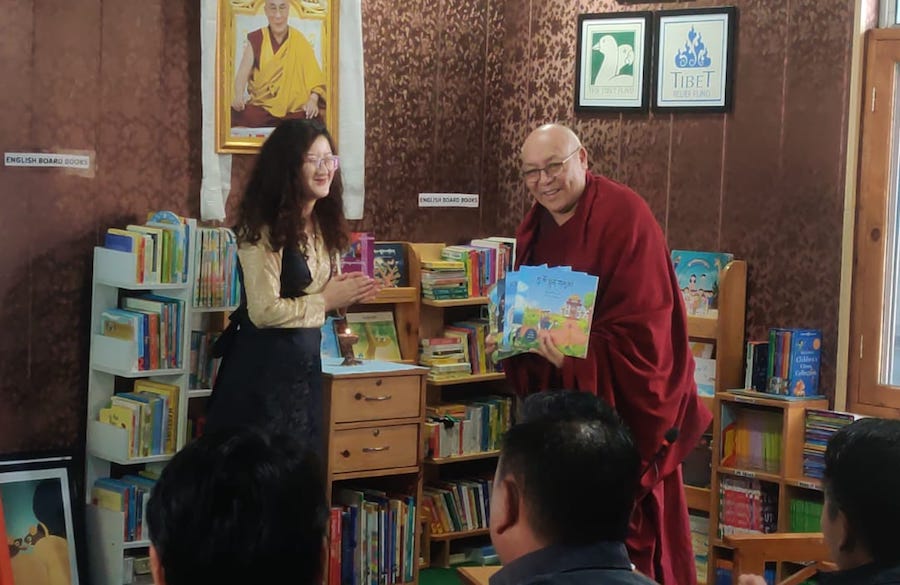By Tsering Dhundup
DHARAMSHALA, Jan 3: Manjushri, a Dharamshala based organization dedicated to promoting Tibetan children’s literature and education, unveiled new books that included five Tibetan folktale books, a Tibetan jigsaw puzzle, and an activity book on Tuesday.
Jamyang Gyaltsen, the executive director of Manjushree, expressed pride in the organization’s achievements, highlighting that they have successfully published 81 titles of Tibetan children’s books since its inception. These publications have reached a wide audience, with over 70,000 copies distributed, nearly half of them are provided free of charge to ensure accessibility.
Director of Library of Tibetan Works and Archives, Geshe Lhakdor, who attended the event as the chief guest, highlighted critical aspects of Tibetan education system in exile. While emphasizing the significance of instilling Tibetan education in children, he expressed concern over the increasing trend of migration of Tibetan youth to the West, which poses a threat to Tibetan language and culture. He stressed the pivotal role of parents in supplementing classroom learning and urged them to prioritize Tibetan language in their households.
Acknowledging the collaborative efforts of the Department of Education (DoE) and various organizations supporting projects of Manjushree, Geshe Lhakdor praised their joint endeavours. He cautioned against the notion of singular superiority in organizational efforts, emphasizing the necessity of collective action. Stressing the shared goal of providing quality education to Tibetan children, he advocated for further collaboration among stakeholders.
Geshe Lhakdor also emphasized the holistic development of children through education, beyond mere literacy and language. He articulated that comprehensive child development involves more than just teaching reading and writing, instead necessitates a focus on broader aspects of a child’s growth and learning.
He also shed light on the issue of a tribal mentality prevailing within the Tibetan community. He highlighted the detrimental effects of engaging in divisive politics and fostering internal conflicts, labelling these actions as indicative of a “tribal mentality.” Moreover, he emphasized that this isn’t unique to the Tibetan community but is witnessed across various societies. Describing this mentality as incompatible with democratic principles, he stressed the need for education to counteract such divisive tendencies.










